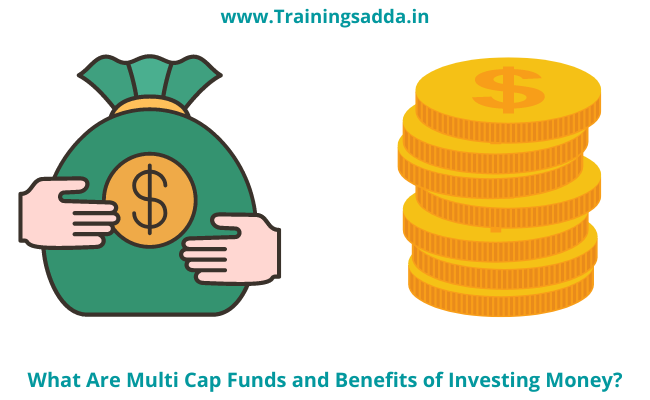What Is Mean Intervene an in Odysseus?

Last Updated on January 16, 2025 by admin
Homer’s Odysseus is a timeless creation concerned with the issues, triumphs, and fantastic adventure of Odysseus, as he confronts his hometown. The main idea of this saga is the concept of intervention, in which the gods, the humans, and the fate of Odysseus are the main factors that shape his path.
However, the question that arises within the context of the epic is “What is mean intervene an in Odysseus”? What did these men do to make his way, and what lessons did we take from them? The guide will reveal the various layers of divine The Odyssey from lust to human decisions, along with their role in the story.
Table of Contents
What Does “Intervene in Odysseus” Mean?
Exploring the meaning of intervention in Odysseus’ journey.
- Intervention with The Odyssey means all the things done by humans, gods or any other forces that affect The Odyssey in such a way that affects Odysseus. These can help or hinder him in his already laid out plan and highlight the details in the story of his journey home.
- These so called odysseys are what the socialists mean when they say the gods play a big role in human endeavour in the odyssey.
- Whether Athena or Poseidon it is, these interventions are the string that ties everything together and weaves in fate, persistence and humanity..
How intervention connects to the themes of fate and free will.
- The divine interventions in The Odyssey are ambiguous between determinism and free will. Odysseus is indeed preordained to go back home; however, the way he gets there is determined by God’s intervention, as well as his own decisions.
- For instance, the goddess’ direction is one such case which is his destiny, but the resourcefulness and determination of Odysseus (like the blinding of Polyphemus) played the most significant part. Focal concerns include whether the importance does really lie with humans when it comes to their destinies or they are to be seen as just pieces on a chessboard of the divine beings.
- This wonderful poem, the Odyssey, talks about how fate ought to be the driving force, but people’s activities and interventions have the power to change the course of fate.
The linguistic and interpretive nuances of the phrase.
- An expression like “intervene in Odysseus” bears both a real and a figurative sense. In a straightforward manner, it relates to the gods and/or the humans intervening in Odysseus’ journey and rerouting it.
- In a wider sense, a symbol of it is how the factors from the outside world, respectively the Holy ones, Natural ones and humans, can influence a person’s life. Linguistically, this term implies something like an obstruction or modification, and to match the mood of the story told with its sudden developments.
- In the sense of interpretation, the sentence pulls readers into debate-about the process of balancing the nature of gods and the individual power in their own destiny.
Divine Intervention in The Odyssey
How Greek gods like Athena, Poseidon, and Zeus intervene in Odysseus’ journey.
- Greek gods are quite significant in The Odyssey. They can either help or hinder Odysseus’s journey. There is Athena as the patron goddess of Odysseus. She gives Odysseus guidance, protection, and even strategic advice.
- Poseidon, on the other hand, resents the loss of his son Polyphemus and creates storms and obstacles in order to postpone Odysseus’ return. Zeus, being the supreme god, intercedes at times between these contending forces in order to guarantee that fate be accomplished.
- These divine interventions indicate the power of gods and their control over human lives, while at the same time reflecting the ancient Greek belief in a world ruled by divine will.
Examples of divine actions that help or hinder Odysseus.
- Interference with the Assistants: Keeping or Disguising Odysseus as a beggar, Athen disguises Odysseus in order to aid him in reacquiring his home, advising Telemachus on the search for his father, and interfering in battles that must be won. In addition to the healing plant moly given to Odysseus by Hermes as a clandestine aid against the harmful enchantment of Circe, another deity intercedes.
- Hindering Help: By his anger, Poseidon makes Odysseus sail bound round the sea before coming back home, while the mighty storms and detenus with Calypso extend the journey for further time. These divine actions make up the central conflicts of the epic through which the hero is only proving more tenacious, resourceful, and knowledgeable..
The role of divine intervention in Greek mythology and storytelling.
- Greek gods actively intervene in human affairs by their Being having probably the greatest amount of narrative intervention all around the world if it comes to hero myths.
- It was therefore necessary for the subtle nuances in storytelling that Achilles had his divine mother, Thetis, and whose story is that of a divine Scylla rejected at birth by Athena with Zeus’s peremptory approval, so in that fictional world here, the human hero, the mēnōn, for example, can also represent the god-hero.
- It also highlights the capricious nature of the gods, giving examples of how their favor or disfavor can change people’s lives. Gods are shown throughout Greek stories as not so much heroes in battle, but allies and adversaries of human heroes..
Human Interventions in Odysseus’ Journey
Decisions made by characters like Penelope, Telemachus, and the suitors.
- This course of action taken by human characters is reflected in The Odyssey where it also has a significant contribution in the process of Odysseus. Penelope’s trick of delaying the suitors through weaving and unraveling Laertes’s shroud stalls arrival time for Odysseus.
- Looking for news of his father marks an important break in Telemachus’ life and projects a statement of maturity and earnest attitudes at the same time. Suitors in maintaining their greed, framed within disrespect, will create barriers through which Odysseus will have to discharge from return.
- Re-differentiable choice permutations concurrently synthesize a distinctive and broader dramatic scheme and offer metaphorical equivalents, where possible, into products anticapital, libidinal, or socialist..
How human choices impact Odysseus’ fate.
- Against the godly assistance to whom the vast The Odyssey is ever-present, however, the human actions are equally significant, since Odysseus’s own actions, for instance, unlock his personal parameters to enormous outcomes.
- The faithfulness of certain personages such as Eumaeus and the Phaeacians assists him in his journeys, as does the treachery of some others.
- All of these selections relate to a theme that men, besides being ruled by fate, can affect destiny all by their own human endeavor..
The interplay between human agency and divine influence.
- The crux of Homer’s epic, the Odyssey, is the relation existing between the powers of human agency and divine authority. Indeed, it so happens in the tale that the gods determine much of the journey of Odysseus, but Odysseus’ final success is still up to his cleverness, courage, and resourcefulness.
- The conflict that unfolds and development of the major theme that can be summarized in one line is that men cannot determine all about fate, but they can certainly mitigate any destruction visited on them through some careful selection and a powerful training. In that season, the closely related fates of human and divine will conspired together.
Do you know: Zodiac Signs Who Are Most Likely To Get Success
The Role of Fate in The Odyssey
How fate governs Odysseus’ trials and triumphs.
- Fate actually leads Odysseus through his adventures making it at times and tragic adventure. The prophecies and decrees of gods often serve as a foreshadow to most of Odysseus’ major feats, for example his predicted return to Ithaca.
- Fate, on the other hand, does not efface the struggle. It is through many trials in the caves of the Cyclops and the understanding of the decisions of the spirit through the dark realms of the underworld that Odysseus will finally reach his goal. The Irony here is that this epic informs of resilience and perseverance as personified by both forces.
The tension between destiny and intervention in the epic.
- The grand show is set in motion by fate. And it is destiny that sets the stage wherein human and divine interventions play their parts in the fortunes of Odysseus. That is to say, destiny preordained is hostility malleable.
- Athena aligns herself with Odysseus’ fate, but Poseidon creates obstacles for him; thus, he puts this hero to the test. This mutual interfusion goes into such a rich fusion that it leads to a more complex understanding of fate in the complete picture..
Lessons about fate and resilience from Odysseus’ story.
- Odysseus teaches through his journey that no matter that fate determines the end one, the means to it need to be accomplished by means of resilience, adaptability, and courage.
- The story plays up the importance of strength in adversity as he stretches beyond all limits ever set for him, usually with the help of the gods and other mortals.
- This epic suggests that while human beings may not shape their own destiny, they can determine the response to it, surviving through adversity.
Key Examples of Intervention in Odysseus’ Journey
Athena’s guidance and support throughout Odysseus’ trials.
Like Athena, Odysseus’ true ally, she intervenes in significant moments to make sure that things go his way. She provides advice, saves him from harm, and even dresses him in disguise to confound his enemies. Her interventions underscore the necessity of wisdom and strategy in meeting a challenge.
Poseidon’s wrath and the storms he unleashes.
Poseidon stirs up most of the epic’s conflict. Particular ire drove him to initiate a storm and shipwrecks after Odysseus gouged an eye from Polyphemus. These incidents stand in the way of Odysseus completing his journey to arrive in Ithaca. But for Odysseus, they are severe tests to his toughness and again they contrast clearly with the awesome power of divine wrath.
Circe, Calypso, and the ways their actions shape Odysseus’ path.
Both Circe and Calypso have stopped Odysseus in their different ways, but there was a difference between how each of them intervened. Circe changed the men into pigs, yet here, she ended up giving him useful guidance and provisions. One tries to enable him to get out with food and advice; however, in both cases, Zeus seriously makes Calypso hold him back. These interactions explore tensions in themes like temptation, loyalty, and the battle for freedom.
Human allies and foes: Eumaeus, the Phaeacians, and others.
Various other human beings also have roles to play along Odysseus’ journey. In the one hand, Eumaeus, the loyal swineherd, gives him shelter. The Phaeacians have thrown away the truth but given the hero a safe journey back home. The entire suitors and other harassers create the traps that Odysseus must survive. These interventions underline the importance of one’s relationships with humans and their choices in deciding the future.
Why Is Intervention Important in The Odyssey?
The narrative function of interventions in advancing the plot.
Interventions drive major plot twists in the Odyssey. They are responsible for moving the story on and creating tension. Whether through the gods’ intervention, human decisions, or deviations from the normal course of things, they introduce challenges and opportunities that shape the course of Odysseus.
How interventions reveal character traits and motivations.
The interventions, in turn, let the reader see the motivations and personality alteration of gods and men, how one took sides with the leading hero while the other never gave up vengeance on him. So the personal characters or value systems of the characters are predicted through human intervention-for example, Penelope’s cleverness or the greed of the suitors.
Broader cultural and philosophical implications of intervention in ancient Greece.
It serves as an illustration in how the Greeks thought of divine responsibility vis-a-vis natural divine concepts as it relates to men. It testifies that while humans will their actions, divine providence essentially determines their existence. Such actions are evident under Greek philosophical beliefs happily held that fate worked in harmony with man’s free will, and as such, the Odysseus in the end was not merely a story much less an epic, but it tells the tale of its viewers.
Modern Interpretations of Intervention in Odysseus
How modern readers interpret divine and human actions in The Odyssey.
Modern readers read into The Odyssey about Athena and symbolically about man’s own inner wisdom or intuition. For example, Athena’s guidance may be argued as a symbol for the corresponding guiding factor in Odysseus’into other similar arguments that would speak of some other being. Poseidon could mean something like unbridled nature or the immoderate force of fate, and waiting to see how these really work themselves out is already fascinating..
Parallels between interventions in the epic and real-life challenges.
Renditions from The Odyssey refer straight to what people feel, say, and do under certain circumstances in their own man-and-nature varations from waterfalls to social comments to cookouts. All of these modern combatations against the indifference or total rejection of the spirit’s daring and humanitarian acts are Odysseusn adventures-like theme, as the case with overcoming adversity serves as inspiration from equivalent foes from challenges in personal life to global crises.
Adaptations of The Odyssey that emphasize or reinterpret intervention.
This is so, as modern interpretations, which mean some version(s) of a film, novel, or play concerning The Odyssey, have relevanced a natural thematic feature of intervention (adherence’s real sense) to an engagement with present concerns–as some do try to find out, for instance, how human will affects divine will or psychology vis-a-vis Odysseus’ quest. They show an almost long-lived tendency to provide what people want but also reveal the generative traits of The Odyssey in Homer.
Also know: Gabby-Free Zone Behavior Improvement
Conclusion
Intervention from a deity, a man, or fate is one of the crucial matters that Homer brought out in the Odyssey, it is intervention which provides the setbacks for Odysseus’ way; it is intervention which strikes him at every point; in the face of all forces, though, the intervention also demonstrates the tenderness of the relationship between any of the free will and what is destined.
When understood as “intervening in Odysseus,” it allows us to view the epical depth and timeless relevance of this. We could feel inspired by Odysseus’ holding fast to interventions in life: He should remind us to go bravely through those unexpected twists and turns in life.
Comments
0 comments



